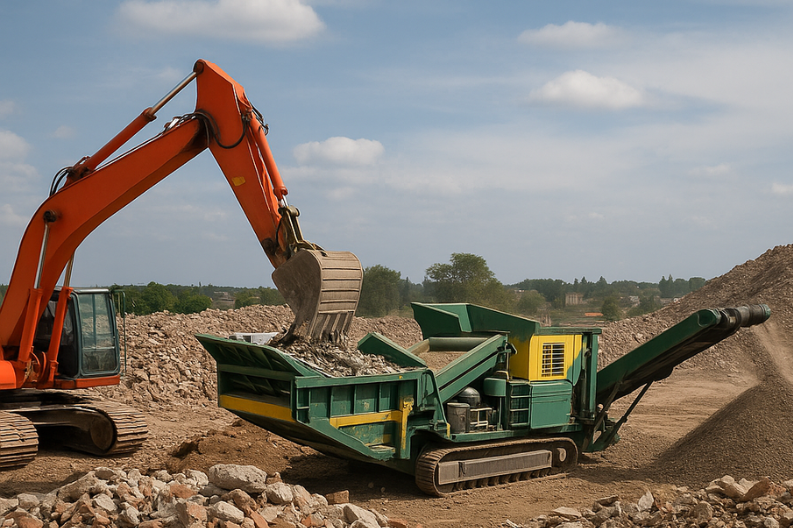Residents of Gurgaon can finally breathe a sigh of relief as the Haryana government has approved the long-awaited expansion plan for the Basai waste treatment plant. The facility’s capacity will now increase from handling 300 metric tonnes per day (TPD) to 1,200 TPD, marking a significant 300% boost in waste management capacity.
The expansion comes as a crucial development for a city that generates between 1,500 and 2,000 tonnes of construction and demolition (C&D) waste every day. Until now, the Basai plant had been unable to cope with the massive daily output, leaving the streets piled with rubble and debris. The approval, which had been pending for over a year, is expected to ease the situation considerably.
Alongside the upgrade, the Municipal Corporation of Gurgaon (MCG) is extending its waste collection area from 15 kilometers to 30 kilometers. This expansion will allow the collection of debris from a broader region, ensuring more efficient waste management. Once collected, all waste — including unclaimed material — will be transported to the Basai plant for processing. The MCG is also preparing a C&D waste management policy to ensure that useful by-products from the processing are put to good use.
Confirming the development, MCG commissioner Pradeep Dahiya said the proposal will go before a cabinet sub-committee chaired by the Chief Minister of Haryana for further approval. An official letter from the urban local bodies department on Wednesday communicated the state’s clearance for the project.
Executive engineer Sunder Sheoran stated that the plant is fully equipped to handle the enhanced capacity without the need for additional machinery. Operations at the expanded capacity are expected to begin shortly, with the cost of processing waste remaining unchanged at Rs 360 per tonne.
The MCG also has future plans to build another waste processing plant at Begumpur Khatola with a capacity of 400 TPD, at an estimated cost of Rs 12 crore. This additional facility will further strengthen the city’s waste management infrastructure.
Chief Minister’s chief principal secretary, Rajesh Khullar, has been closely monitoring the issue, holding a series of meetings with MCG and Gurugram Metropolitan Development Authority officials in mid-August. Stressing that no construction debris should be left on city roads, he demanded strict enforcement of cleanup operations. Following these directions, the MCG has started removing waste from known dumping hotspots to improve cleanliness across Gurgaon.
The expansion of the Basai waste treatment plant marks a decisive step toward addressing the city’s mounting waste problem. With increased processing capacity, extended collection routes, and plans for additional plants, the city is on track to manage its waste more effectively. For Gurgaon residents, this development promises not just cleaner streets but also a more sustainable and healthier environment.



